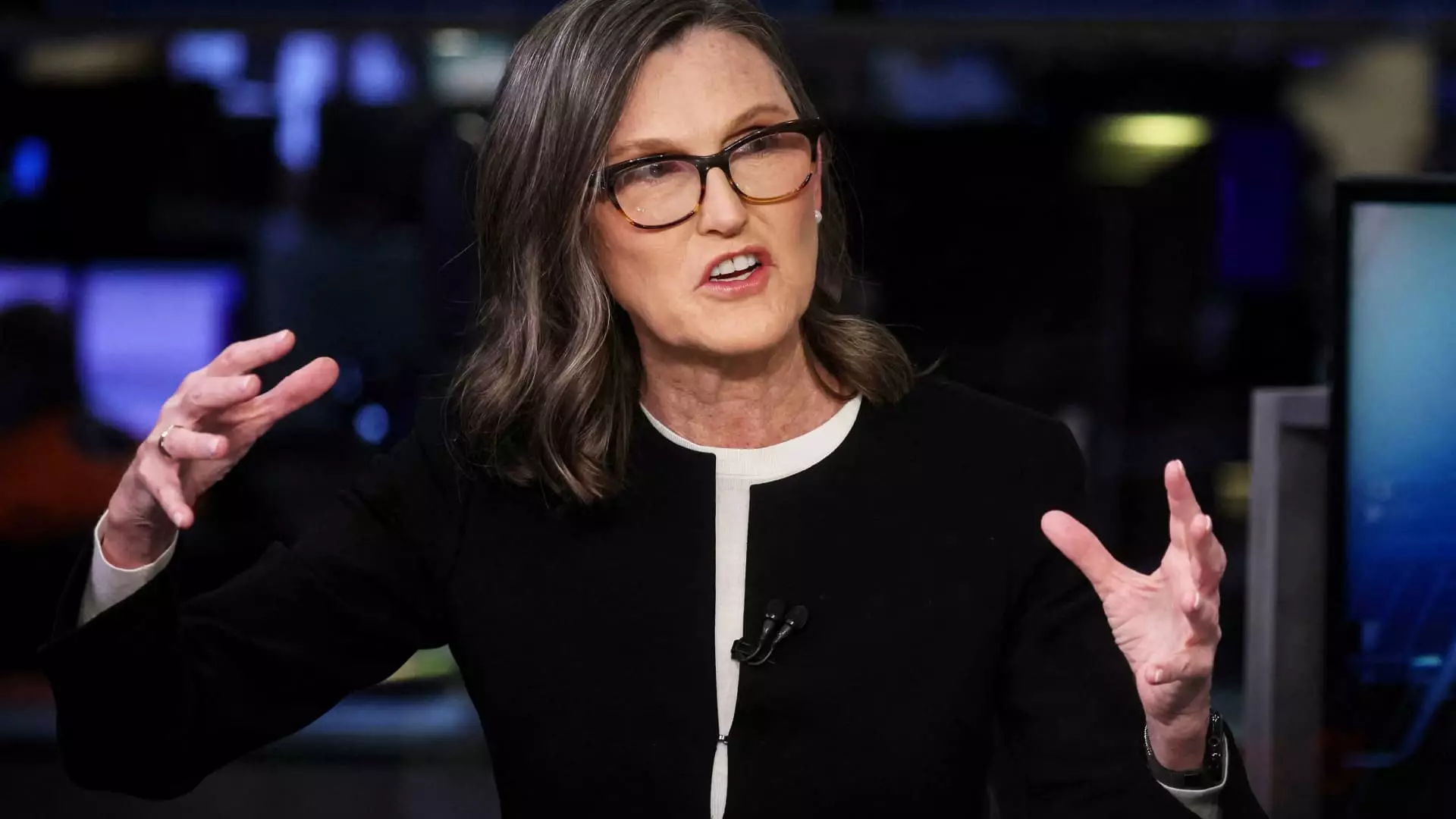In the ever-evolving financial landscape, investor sentiment can shift rapidly, propelled by numerous external factors, including political developments. Cathie Wood, a well-known figure in the investment community, has recently witnessed a notable surge in her Ark Innovation ETF (ARKK) following Donald Trump’s reelection. This surge, which has seen ARKK rise by over 30% since the U.S. election on November 5, poses significant questions regarding the correlation between political events and market confidence. While this uptick initially paints a promising picture, the continuous outflows from Wood’s funds indicate that all is not as rosy as it seems.
Upon examining the details, it becomes evident that while ARKK recorded a year-to-date return nearing 18%, investor flows tell a contrasting story. The fund experienced outflows amounting to $49 million in November and an additional $24 million in early December, as reported by FactSet. This contradiction raises essential questions about the sustainability of the ETF’s gains and the underlying investor sentiment. The significant outflows represent a total that has eclipsed $3 billion in 2024 alone. Therefore, while the fund’s performance has been buoyed by Tesla’s impressive growth—an astonishing 70% since Trump’s victory—it also reflects a broader disillusionment with the once-celebrated innovation-focused investment approach.
Cathie Wood’s Ark ETF was the darling of the 2020 pandemic rally, primarily due to its bold investments in high-growth tech stocks, such as Tesla and Zoom. However, the landscape has since shifted dramatically. The fund has lost approximately 60% of its value since its 2021 peak, illustrating the volatility inherent in its investment strategy. As Todd Rosenbluth of TMX VettaFi points out, ARKK has lost its standing as the premier actively managed ETF amidst overwhelming competition and changing investor attitudes. The current period reveals that past success does not guarantee future returns, leaving investors grappling with the implications of high-risk strategies at a time when market conditions are shifting.
Despite the unsettling outflows, Wood maintains optimism that a favorable regulatory environment under Trump could ignite technological advancements that rival those observed during the Reagan era. The commentary around possible deregulatory policies suggests a belief that the U.S. economy can once again harness innovative potential for robust growth. Notably, Tesla remains a cornerstone of ARKK’s portfolio and has been posited as a significant beneficiary of Trump’s administration, particularly due to CEO Elon Musk’s active engagement in pro-Trump campaigns.
Furthermore, alongside Tesla, the performance of companies like Coinbase—a cryptocurrency exchange that has soared over 80% this year—illustrates a speculative trend among investors seeking exposure to emerging technologies. The potential for supportive regulation in the cryptocurrency sector under Trump’s leadership adds another layer of complexity to the investment narrative.
Amidst the optimism surrounding potential deregulation and technology adoption, the inconsistencies in ARKK’s performance are revealing. While Tesla and Coinbase have experienced remarkable gains, other holdings within the ETF have struggled to recapture their pre-2021 levels. Stocks like Roku and Pinterest, which thrived during the pandemic, have not seen the same rebound, with losses of 9% and 16% respectively in the current year. This disparity within the portfolio illustrates the diversified risks that ARKK faces amidst fluctuating market dynamics.
The case of Cathie Wood’s Ark ETF is a compelling study in the complexities of innovation investing. As we navigate the post-election landscape, it will be crucial for investors to critically assess the sustainability of growth stories amidst rising volatility. The interplay between political developments, technological advancements, and market psychology means that the innovation landscape is continually being reshaped. Ultimately, investors must remain vigilant as they explore the potential rewards and inherent risks present in the chase for innovative growth.
While the current tide of optimism may buoy ARKK temporarily, it must confront the underlying challenges of changing investor sentiment and performance realities. The future of innovation investment is fraught with uncertainties, and staying informed will be imperative for all stakeholders involved.

